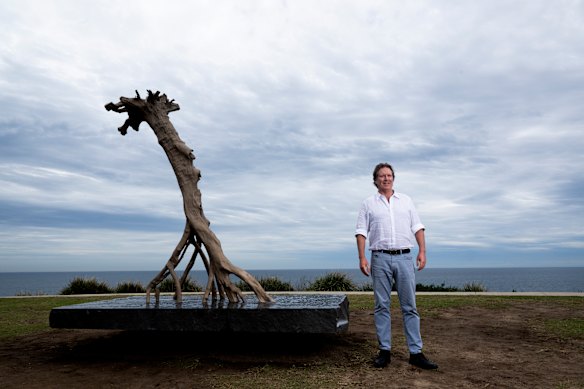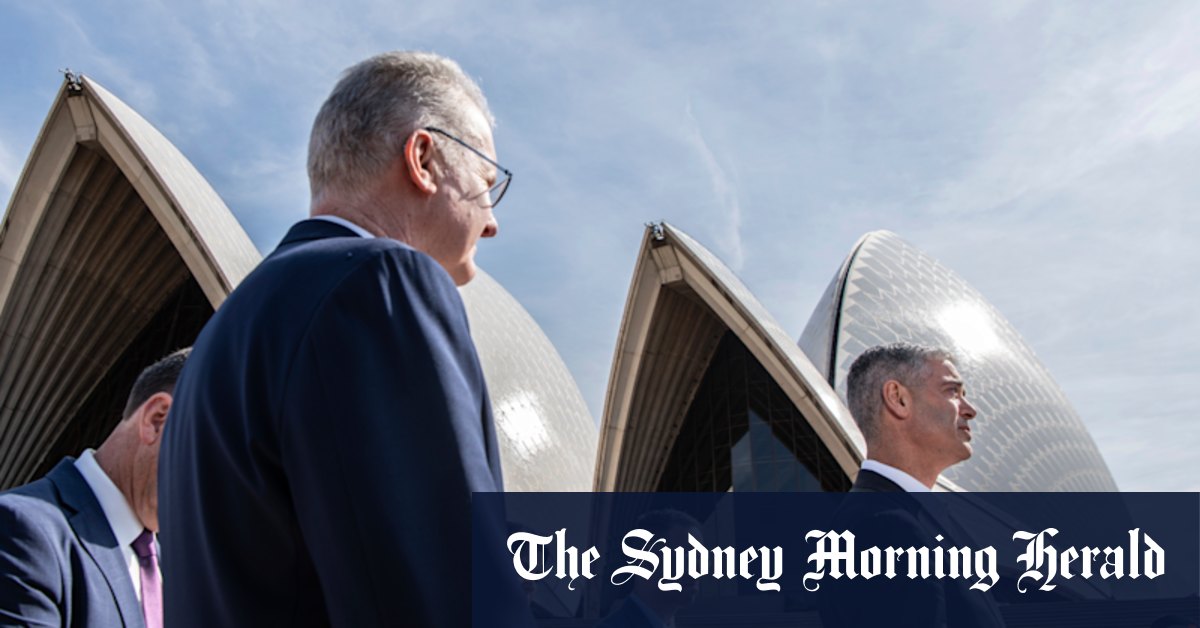
“How are we meant to pay the artists if Creative Australia doesn’t fund us?” says David Handley. Credit: Louise Kennerley
Burke’s comments came before the opening of a historic arts tax summit convened at Sydney Opera House attended by arts ministers for NSW, Victoria, South Australia and Western Australia. Ministers came empty-handed, but Burke said tax breaks would be considered when its national cultural policy, Revive, came up for review next year.
“There are many parts of the arts sector that are very much struggling … [but] you don’t get bigger reform without doing the rigorous work first,” Burke said.
“We’re right at the beginning of a whole lot of ideas and I want the work to be done. If you do make changes to the tax system they’re got to be big enough to make a difference, and they’re long-lasting and would give real security to the sector.”
The most popular idea to emerge from 307 submissions was making government art prizes tax-free, NSW Arts Minister John Graham said.
“That way the winner of the Archibald Prize would pay as much tax as the winner of a bet on the Archibald Prize, who pays zero tax,” he said.
Loading
Support was near universal for extending tax incentives – allowing for rebates on upfront production costs – from screen and digital gaming to theatre and performance.
Elaine Chia, chief executive of the Naomi Milgrom Foundation, said tax reforms should address the demand side of the arts business. “Who wants to play to half the house?,” she said, pointing to the example of Canada where GPs can prescribe free museum tickets for mental health and 18-year-olds are eligible for a voucher redeemable for the arts. “What do you get for your 50th birthday from the government?,” she asked. “A free bowel screening test.”
Archibald Prize winner Ben Quilty listed six arts schools which either been shut or restructured in the past 12 years, and said music schools had been equally decimated. It was a matter of government priorities, he said.
“If we get one tenth of the subsidises Woodside is given we’d be f —-d right,” he said. “When you say we are on a precipice, I’d say we are on a terrifying precipice.”
Making a case for a production offset tax for theatre as well as wider reforms, Sydney Theatre Company’s executive director Anne Dunn said the arts was at a “tipping point”.
“We are seeing creatives leave Sydney. We are seeing creatives and arts workers leave the industry completely. We are seeing casts get smaller because the companies can’t produce the works of scale we once were able to, so we have seen a real loss to the sector across all those areas. It’s on the stage, it’s behind the stage, it’s in our workshops. It’s been a really, really tough time, and it’s a time that I’ve never seen in my 30 years in this business.”
A joint communique issued late Thursday did not commit to any particular reform, instead restating that government funding alone would not keep up with rising costs, the scale of the challenge and the many opportunities our cultural sector presents.
“One of the other big levers that could be pulled is tax reform. Annual funding comes and goes with budget cycles but structural changes to our tax system could boost culture for generations to come.” the ministers said.
“Tax reform is not easy, but we are at a unique moment where crisis meets opportunity.”
Start the day with a summary of the day’s most important and interesting stories, analysis and insights. Sign up for our Morning Edition newsletter.

